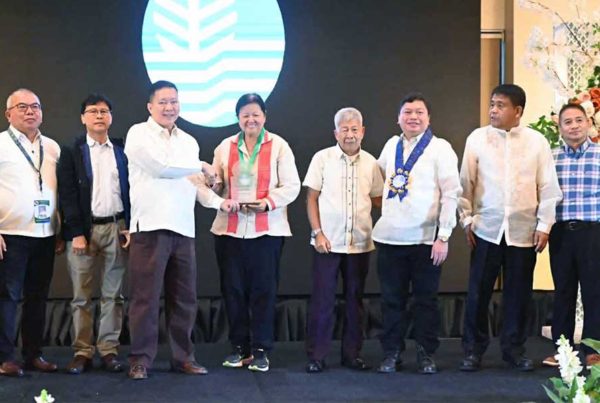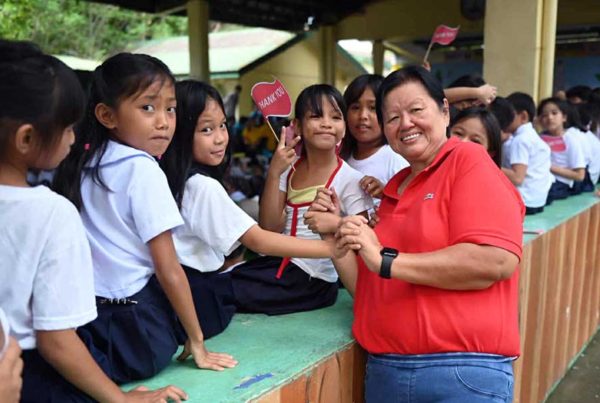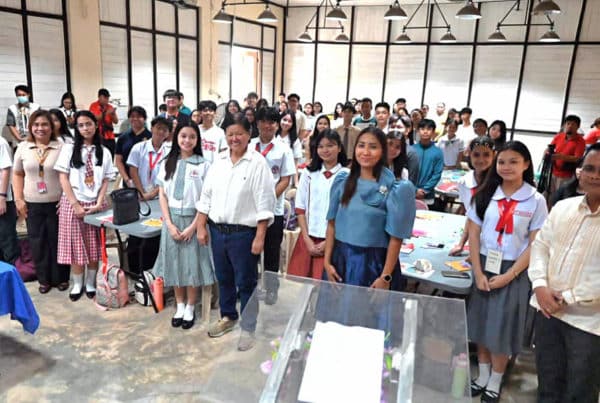The youth’s responsibility
By Rep. Christopher de Venecia
(Remarks delivered for Session IV: Responsibility of Youth to Build a Culture of Peace At the Inauguration of the network of Youth and Students for Peace Bangkok, June 12, 2017)
In the Philippines, our government has been engaged in formal peace talks with various armed groups for over decades now. The mere mention of “peace talks” evokes the image of old men and women sitting across each other, trying to figure out what commonalities they share which would serve as a place from which to start. When it comes to peace, our young men and women are left out of the conversation—and, as studies have shown, that is often the case in many countries around the world. Political power, whether inside or outside the realms of peace and peace negotiations, tend to be capitalized by adults or our elders.
But, why does the responsibility of building a culture of peace fall on the youth?
Well, the simple answer is that, someday, you’ll be those men and women sitting across each other on that table, brokering negotiations, forging peace accords, and making decisions that would affect the nation and the global community. We are in essence forged by the values and universalities that shape the world that we live in and how we as individuals respond to all these changes.
You, as the youth, have a special role in building peace, lasting peace.
Consider the numbers. As early as 2014, At 1.8 billion young people, we are seeing the largest global youth population in the history of humankind. The flipside is this – young people often form the majority of the population in conflict-affected countries. The world’s youth is directly affected—and that means that stakes are higher for us to get involved.
Because success in building peace depends so much on inclusiveness, we can only ignore the youth at our own peril. For peace-building to be inclusive, it has to actively include you – not only in the realm of engaging via social media but actually engaging with policy-makers, non-government organizations, and sectors in the community. This would involve a bottoms-up approach – where the imperative is that “I don’t know, but I want to find out.”
That might seem like too big a burden… But it is not impossible.
First, educate yourselves in history and culture. The world today seems plagued by ignorance and fake news and covfefe. All these breed fear, discrimination, and alienation, which are all tinder that can quickly spark into conflict. The key is to know history and culture—and not just yours. Expand beyond the familiar. Develop a love for humanities and critical thinking. Get to know people from other cultures and other backgrounds, and maintain channels of informed and well-meaning dialogue with them.
You enhance your knowledge and skills. You’re already here. This is a good a start as any. There is always more to be learned. There is always more to be experienced. Remember: nothing is wasted. But remember, it doesn’t stop in the realm of theory. We broaden our mindset with exposure to cultures, ideas, best practices in order to put into good use and effect genuine, authentic, sustainable peace.
But it doesn’t all fall on you. Your elders have the responsibility to help build trust between you and institutions like the government, the responsibility to create spaces where you can express your opinions and be heard. And if you feel they are not doing these, you have the Internet and social media. You can make your voice heard, band together with like-minded individuals in service of a worthy cause. These are tools that those who came before you have never imagined even in their wildest dreams. We all have fun using them, but use them wisely, use them responsibly, use them well. The modern adage goes, “Think before you click.”
I want you to remember and always keep in mind that what you do actually matters, and what you do online or offline has consequences. Yes, you’re young and feel like our governments and institutions barely notice you. It might feel like whatever you say will only be drowned out in noise. But what you do matters. It matters now. It will matter tomorrow… Keep doing what you know is right—because what you do will shape our future, and our present. Thank you.
Share your Comments or Reactions
Powered by Facebook Comments









